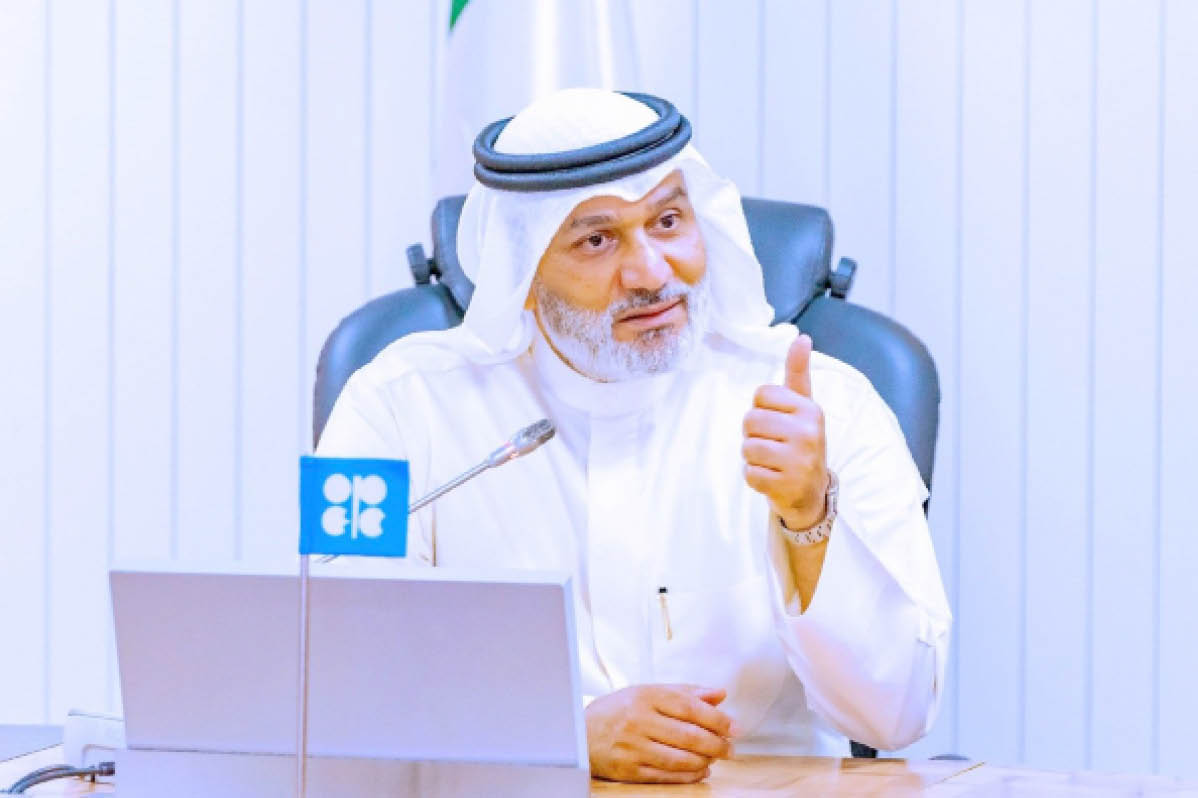Haitham Al-Ghais, the Secretary-General of the Organisation of Petroleum Exporting Countries (OPEC), visited Nigeria recently, where he met with President Bola Tinubu and attended the Nigeria International Energy Summit. He spoke to Daily Trust Business Editor on the sideline of the event.
In what ways do you think Nigeria is an important Member Country in OPEC?
We are very privileged at OPEC to have 12 unique and fascinating Member Countries. All of them are special in their own way and that is, of course, the case for Nigeria. If one takes a glance through history, we can see a range of ways in which OPEC and Nigeria have enjoyed productive bonds.
Over the course of a 17-day period in the third quarter of the year 1960, two historic events took place, with profound consequences for international relations, the energy sector and petroleum industry. On the 14 September 1960, in Al-Shaab Hall in Baghdad, OPEC came into existence. Two weeks and three days later, on 1 October 1960, Nigeria became an independent, sovereign country.
The proximity of these dates reflects the intertwined destinies of OPEC and Nigeria. Both have shown relentless commitment to cooperation, the multilateral system, and a stable oil market that serves the interests of producers, consumers and the global economy.
An agenda for ‘new’ Supreme Court
Minister seeks mobile court for sexual offenders
OPEC has been extremely fortunate to count Nigeria as a Member Country for more than half a century. The accession of Nigeria certainly broadened the geographical spread of OPEC, making it more international and lending it additional credibility.
Nigeria became the 11th OPEC Member at the OPEC Conference on 10 July 1971. Barely 48 hours after becoming a Member, the first Nigerian delegation participated in an OPEC Conference, namely, the 24th Conference. Fifteen months after Nigeria had become a full Member, its Head of Delegation, Shettima Ali Monguno, was elected as Conference President at the 30th Meeting of the Conference in Riyadh, Saudi Arabia, in October 1972. A month thereafter, Nigeria hosted the 31st Conference in Lagos on 29-30 November 1972.
Over the decades, Nigeria has presided over many important meetings of the OPEC Conference. An illustrating example was the 143rd (Extraordinary) Meeting of the Conference, which convened in Abuja, on 14 December 2006.
These snapshots underscore that the relationship between OPEC and Nigeria has been mutually advantageous. Nigeria has earned its reputation as a deal-maker and consensus-builder. The nation has taken up the Presidency of the OPEC Conference, as well as the role of OPEC Secretary General, at very challenging times and responded by seizing opportunities when they have arisen. As a result, OPEC has become a stronger Organization with Nigeria’s presence.
Could you shed more light on the significance of your visit to Nigeria in relation to the Nigeria International Energy Summit?
The Federal Government of Nigeria deserves credit for how the Nigeria International Energy Summit (NIES) has become one of the leading events in the industry calendar. The calibre of attendees, topics of discussion and networking opportunities means this has really become unmissable for energy stakeholders.
It is also very important to address energy matters pertaining to Africa, because these have implications for the entire global oil energy. The issues that affect Africa, they are not just regional issues, they are issues of global importance. These encompass making sure energy transitions are just and inclusive; that the tragedy of energy poverty is tackled; that harmful greenhouse gas emissions are reduced and that matters related to energy security are addressed. So we can expect fascinating discussions on these and other topics at the NIES.
OPEC’s most recent World Oil Outlook 2023 projected an increase in the global oil demand. Why do you think that oil will continue to be relevant in the global energy mix?
According to OPEC’s World Oil Outlook (WOO), by 2045, the global population is set to expand to about 9.5 billion and the global economy almost double. As a result, global primary energy demand is set to increase by 23% to 2045.
All forms of energy will be necessary to meet these demand needs. However, oil will retain the largest share in the energy mix and global oil demand is set to reach 116 million barrels per day (mb/d) by 2045.
Furthermore, although it is taken for granted, oil and the products derived from it, are essential for almost every aspect of modern life. Crude oil is an irreplaceable resource and its importance goes beyond energy. Just think about petroleum-derived products such as toothpaste, deodorant, soap, cameras, computers, gasoline, heating oil, jet fuel, car tyres, contact lenses, synthetic fertilizers, and artificial limbs.
If oil vanished today, these and many other vital products and services that use oil or its derivatives would vanish too. Transportation networks would grind to a halt, homes could freeze, supply chains would crash and energy poverty would rise.
The global media is awash with narratives and counter-narratives on the need for more financing and investment for the global oil industry at a time when the call for energy transitions to renewable is dominating the airspace. What is the OPEC stand on this?
In the WOO 2023, oil industry investment requirements out to 2045 total $14 trillion, or around $610 billion on average per year. These are huge numbers, and we should also recall that is an industry with long-led times, and long payback periods.
Allow me to add on investments that we need a long-term stable investment-friendly climate, one that works for producers and consumers. This is vital to help expand supply to meet demand, and to ensure investments in technologies to help reduce emissions.
We need to move away from the misguided idea of no longer investing in new oil projects, as some other organisations have suggested. It is not helpful to anyone and has the potential to lead to significant volatility.
During the just concluded COP28 held in an OPEC Member Country (United Arab Emirates), OPEC’s viewpoint was notably very pronounced. What is the significance of COP28 to OPEC Member Countries as the call to phase out oil gathered momentum?
We congratulate the UAE on hosting a successful COP28, which was significant because it was held in an OPEC Member Country. Negotiations were not easy at times, but the Presidency was able to bring everyone together at the end. I think it is important to stress that the outcome was not just one line. It was much more when you read the full document.
There were options for all. There were pathways for all. It talked about approaches in the plural. It called on “Parties to contribute to global efforts, in a nationally determined manner, taking into account the Paris Agreement and their different national circumstances, pathways and approaches.”
This includes:
– Tripling renewable energy capacity and doubling the global average annual rate of energy efficient improvements by 2030.
– Accelerating efforts towards net zero emission energy systems, utilizing zero- and low-carbon fuels by around mid-century (or before).
– Accelerating zero- and low-emission technologies, referencing CCUS, and low-carbon hydrogen production.
– Reducing methane emissions (Oil and Gas Decarbonization Charter at COP28)
– Accelerating the reduction of emissions from road transport on a range of pathways.
OPEC is supportive of these options. We are already playing a role in enabling energy security and reducing emissions, and we stand ready to move this further forward.
What are the other messages you think the world needs to know about OPEC and stabilization of the global oil market?
There are many, but just a few I feel I should highlight. OPEC believes in dialogue. All energy stakeholders should have their voices heard in climate negotiations.
OPEC believes in inclusivity. We need all-energies, all-technologies and all-peoples approach to the energy transition. The views of developing countries must be recognized in climate negotiations. Technological innovation is a key focus for OPEC. It is why our Member Countries are investing heavily in hydrogen projects, CCUS, CCS and DAC facilities, the circular carbon economy, and renewables.
OPEC believes in realism. There is a place for ambitious and aspirational goals, but we cannot lose sight of the real world- the energy reality. Energy and oil are central to daily life across the globe. Recognizing that reality will help improve policy formation as we all work together toward an emission-free future, with energy access for all.

 Join Daily Trust WhatsApp Community For Quick Access To News and Happenings Around You.
Join Daily Trust WhatsApp Community For Quick Access To News and Happenings Around You.


